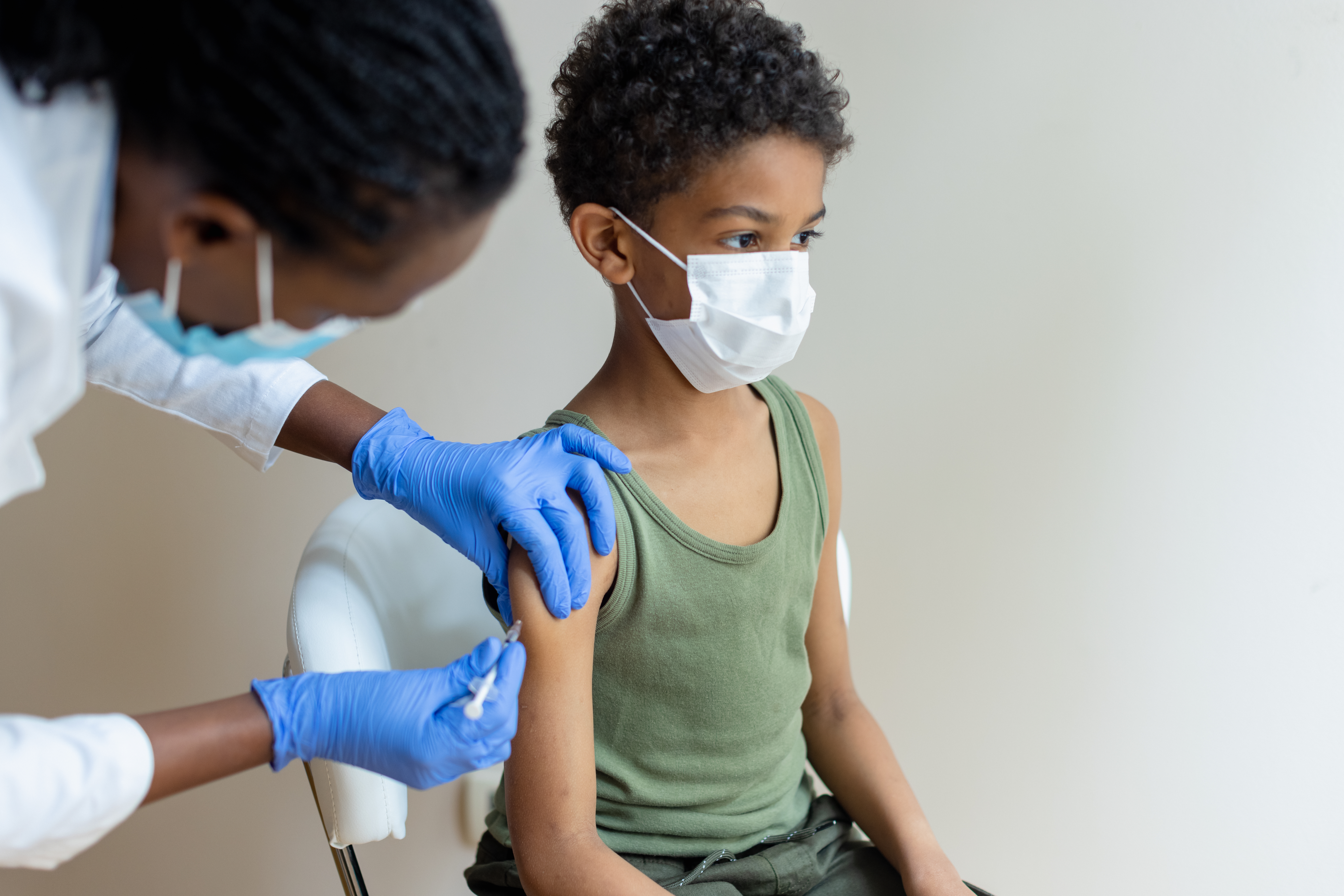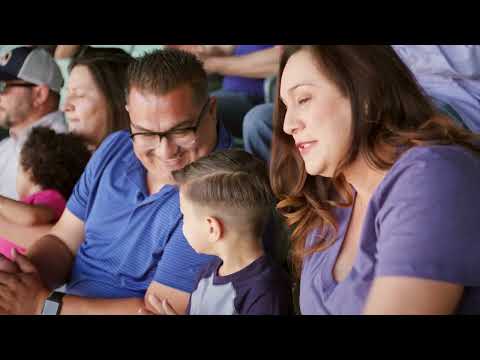With the Pfizer-BioNTech COVID-19 vaccine now available for children ages 5–11, many parents have questions about how it works and the potential side effects. We answer the most frequently asked questions below.

How does the vaccine work?
The Pfizer-BioNTech COVID-19 vaccine, approved for children ages 5–11, is a messenger ribonucleic acid (mRNA) vaccine. This means it doesn’t contain any trace amounts of the COVID-19 virus. Instead, the mRNA in the vaccine teaches the body to recognize the virus quicker than the body would on its own.
If you’ve seen pictures of the COVID-19 virus, it appears to be covered in spikes. The mRNA vaccine carries instructions inside a fat coating that tells cells in the body to produce harmless pieces of spike protein. To the body, these look like spikes on the COVID-19 virus. The immune system recognizes that these spike pieces aren’t supposed to be there, triggering the creation of antibodies to get rid of them. The antibodies then know what to do when they come into contact with the COVID-19 virus.
The Pfizer-BioNTech COVID-19 vaccine is administered in two doses. Once the mRNA in the vaccine tells the body how to make antibodies, it is broken down and exits the body within a matter of hours after the first dose. The second dose, administered three to four weeks later, reinforces the antibodies’ instructions. Your child is considered fully vaccinated two weeks after receiving the second dose.
The use of mRNA vaccines has been widely studied and researched for decades, making it a safe and effective option for fighting the COVID-19 virus.
Why is the vaccine available later for children than adults?
Because vaccines have to reach a higher safety standard for use by children, vaccines for children are often released later than the adult version. When testing new vaccines, scientists only start trials with children once they’ve determined the vaccine is safe for adults. Also, because children’s immune systems change as they grow and age, scientists have to conduct age de-escalation studies. In these studies, participants are first placed in different groups by age. Then, younger age groups receive smaller vaccine doses than older age groups to help scientists determine exactly what dose is needed at different ages. For example, children younger than 6 years old will start out with a much lower dose than those who are 16 years old.
How effective is the vaccine for children ages 5–11?
In research, the vaccine was found to be 90.7% effective in preventing COVID-19 in children ages 5–11. The U.S. Food and Drug Administration (FDA) is continuing to test the effectiveness of the vaccine in studies across the U.S., Finland, Poland, and Spain.
If my child already had COVID-19, should they get vaccinated?
Yes, being vaccinated will help protect your child from getting COVID-19 again, and it will help prevent serious illness or hospitalization if they do get infected. Pediatric hospitalizations have been rapidly increasing in many states. This month, New York City experienced a five-fold increase in pediatric admissions. Close to double the numbers were admitted in Washington, DC. On average, nationwide pediatric hospitalizations increased 35% in just the past week.
In addition, research has not yet indicated how long children are protected from getting COVID-19 again after recovering from the virus. The vaccine helps prevent your child from contracting a variant of the COVID-19 virus, like Delta or the highly transmissible Omicron variant, which can lead to long-term health effects like long-haul COVID. Getting children vaccinated is also crucial for slowing the spread of COVID-19, in order to protect vulnerable groups like those with weakened immune systems, the elderly, and those with underlying health conditions.
What are the side effects of the vaccine?
Children might experience minor side effects such as pain where the shot was given, fatigue, headache, chills, muscle pain, fever, joint pain, swollen lymph nodes, nausea, or decreased appetite. Like with adults, the effects typically occur within two days of vaccination and typically last one to three days. More children reported these side effects after the second dose of the vaccine. However, some children experience no side effects, except for some injection site pain.
In very rare instances (54 cases per 1 million doses administered), males ages 12–17 have reported cases of myocarditis and pericarditis after mRNA COVID-19 vaccination, according to the CDC. Myocarditis is inflammation of the heart muscle, and pericarditis is inflammation of the lining outside the heart. Most who received care for these issues quickly felt better after medicine and rest. It is also important to know that COVID-19 infection is far more likely to cause myocarditis and far more severe myocarditis cases than receiving the vaccine.
For more information about accessing the Pfizer-BioNTech COVID-19 vaccine for children ages 5–11, please refer to our previous article.






